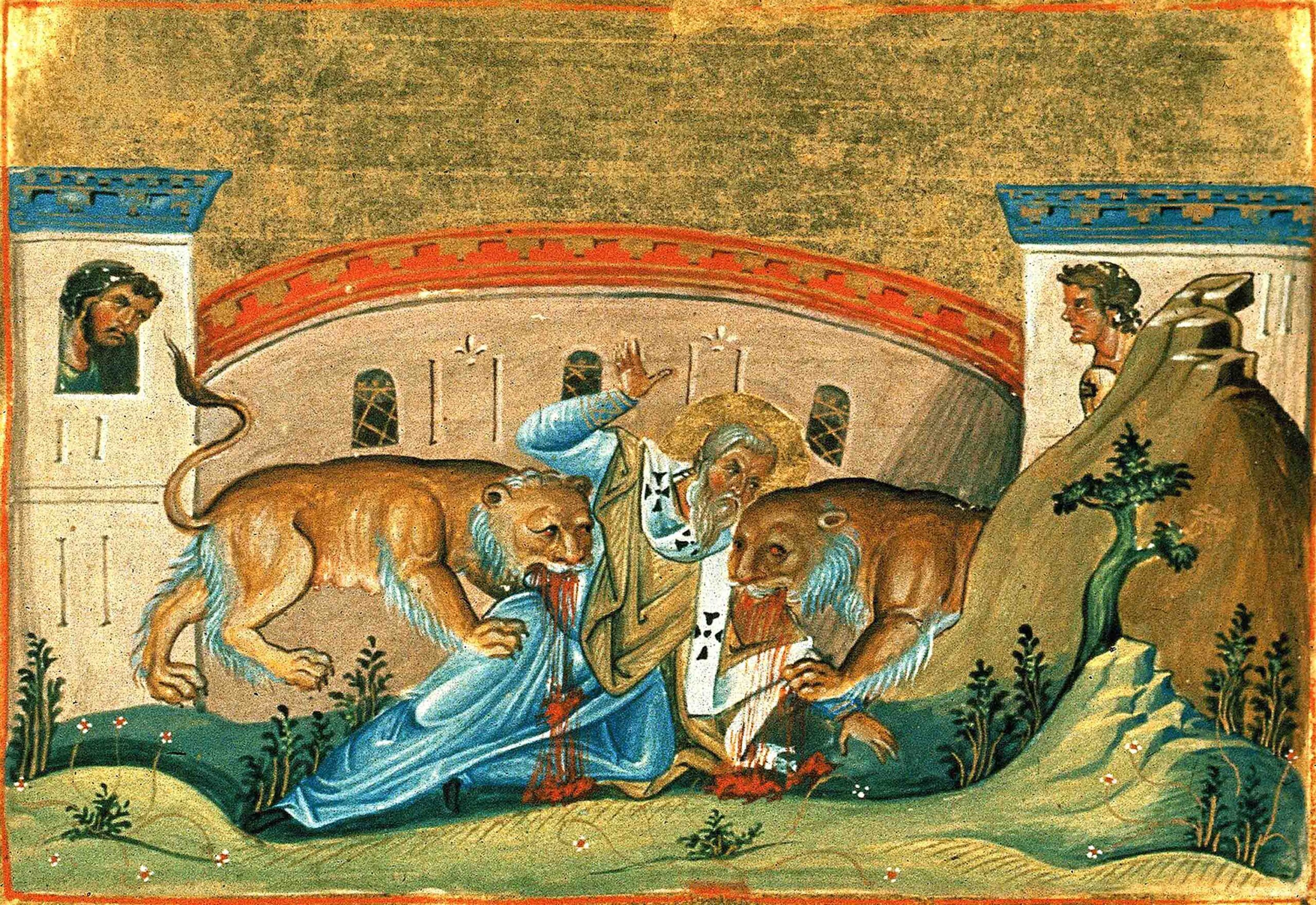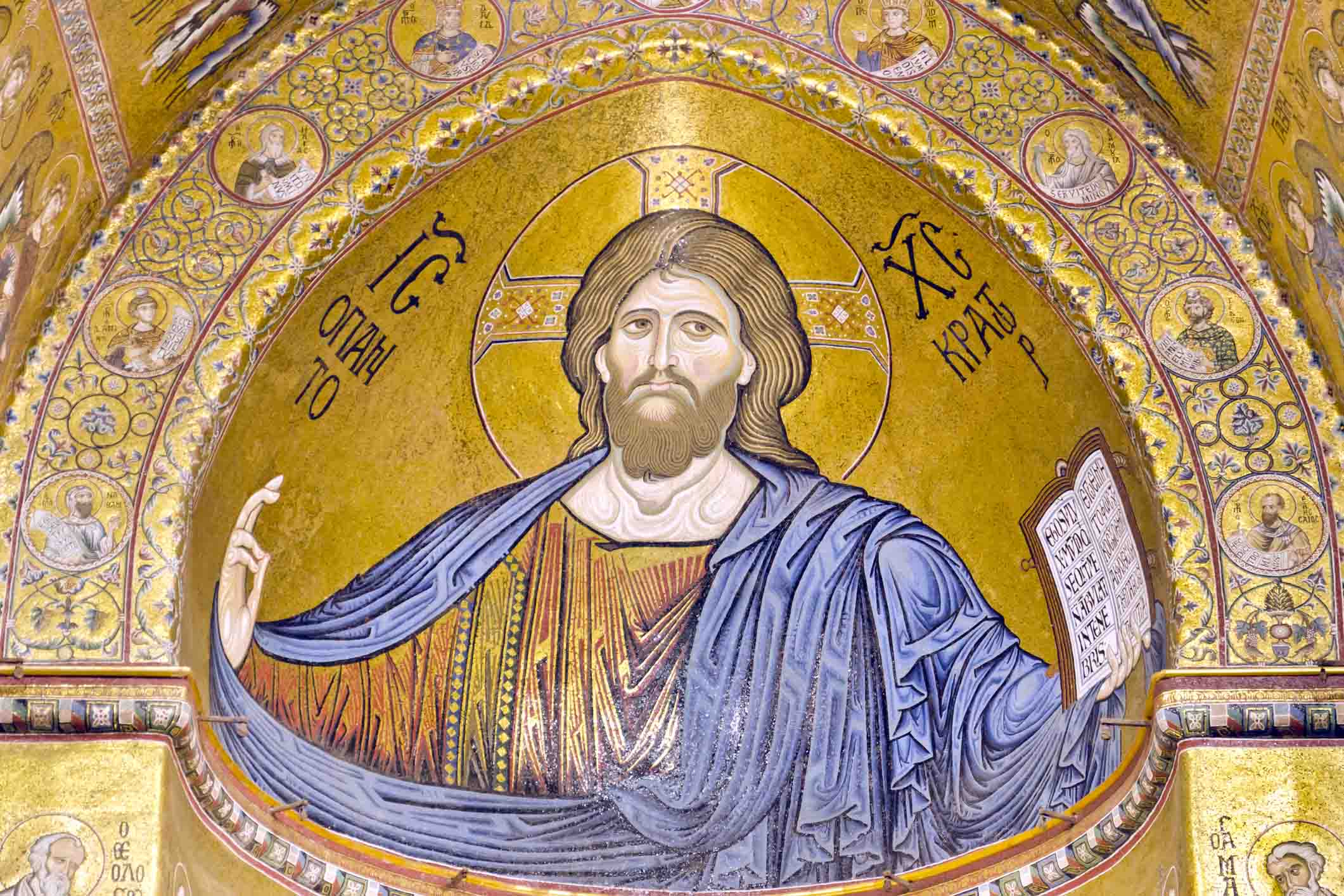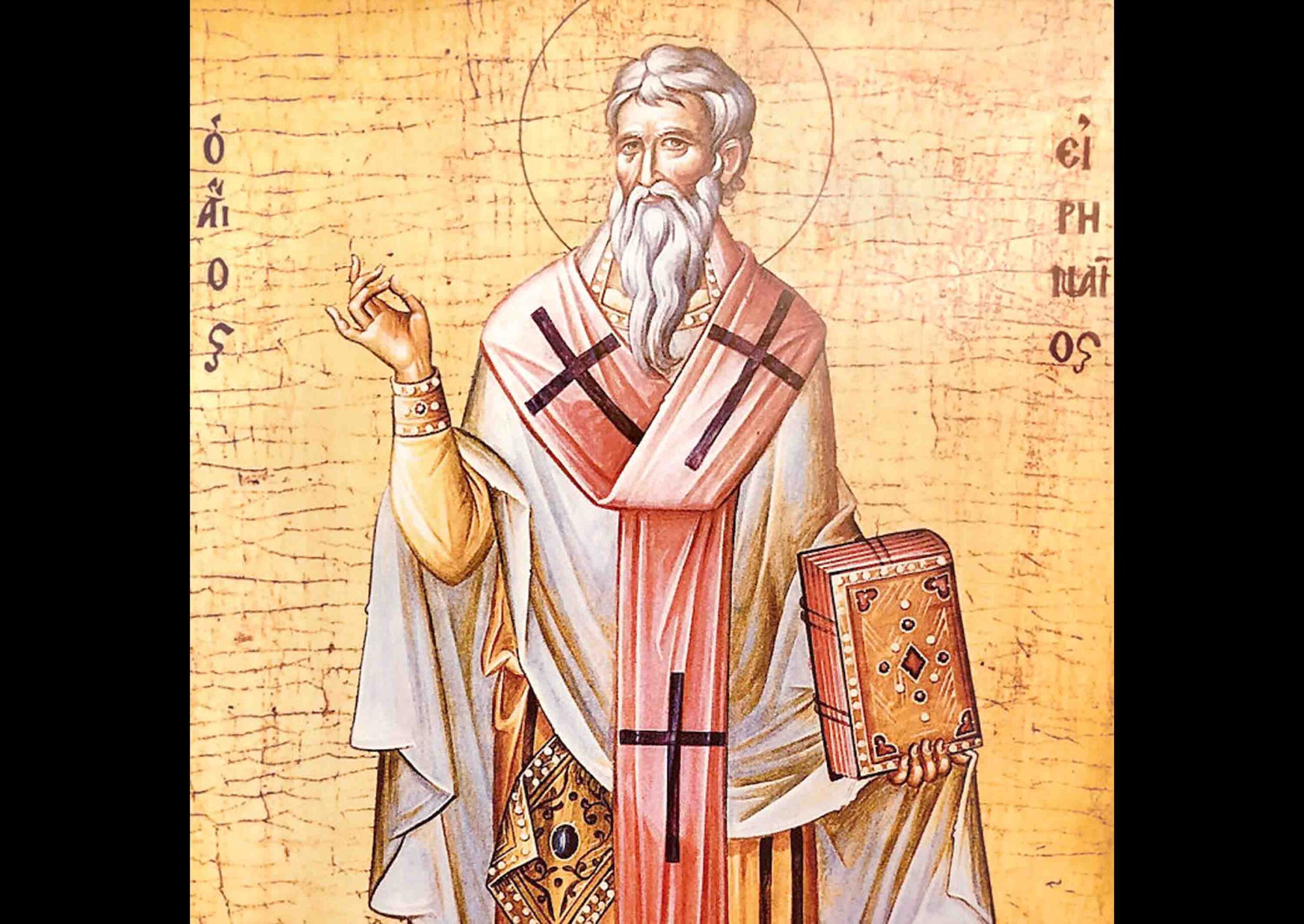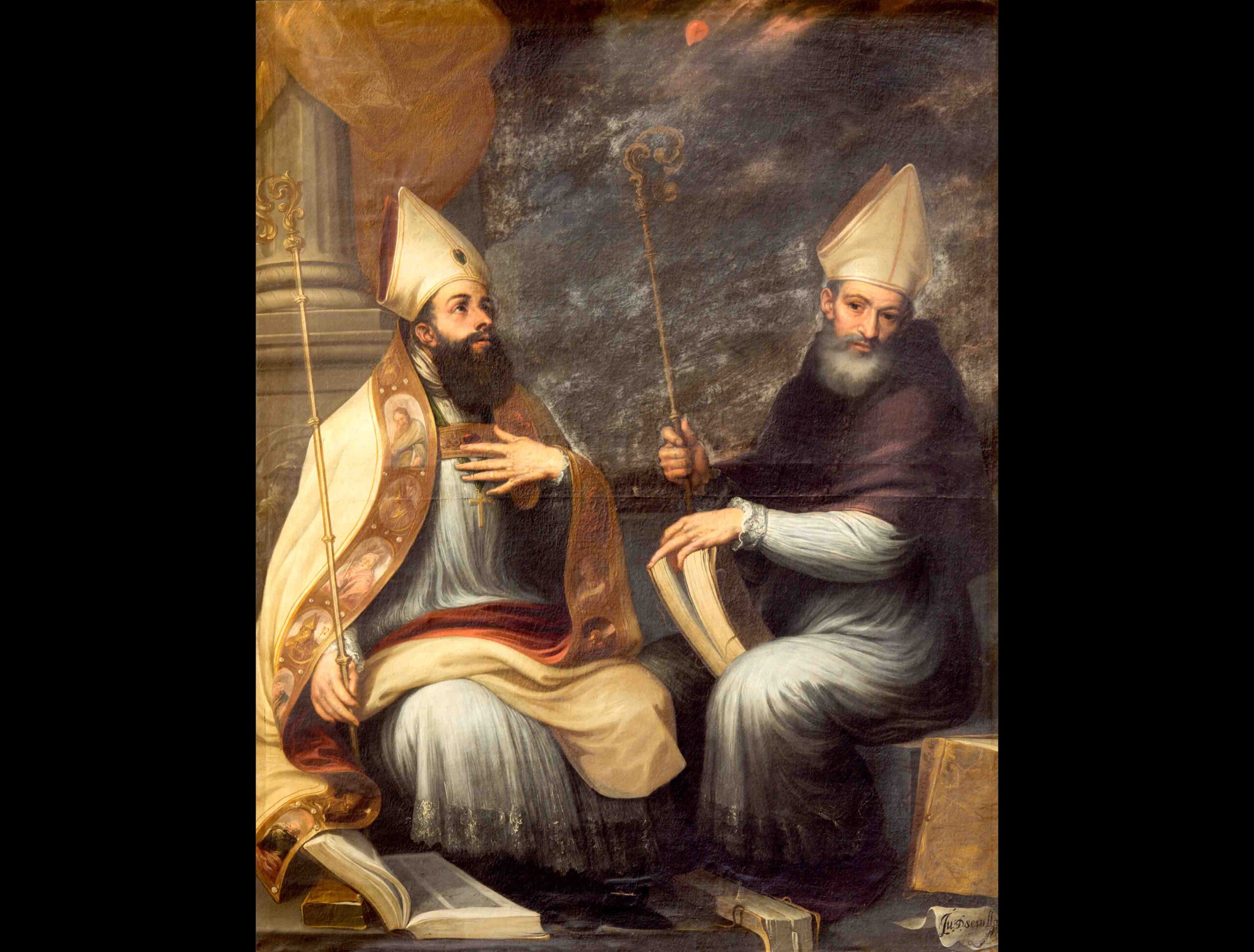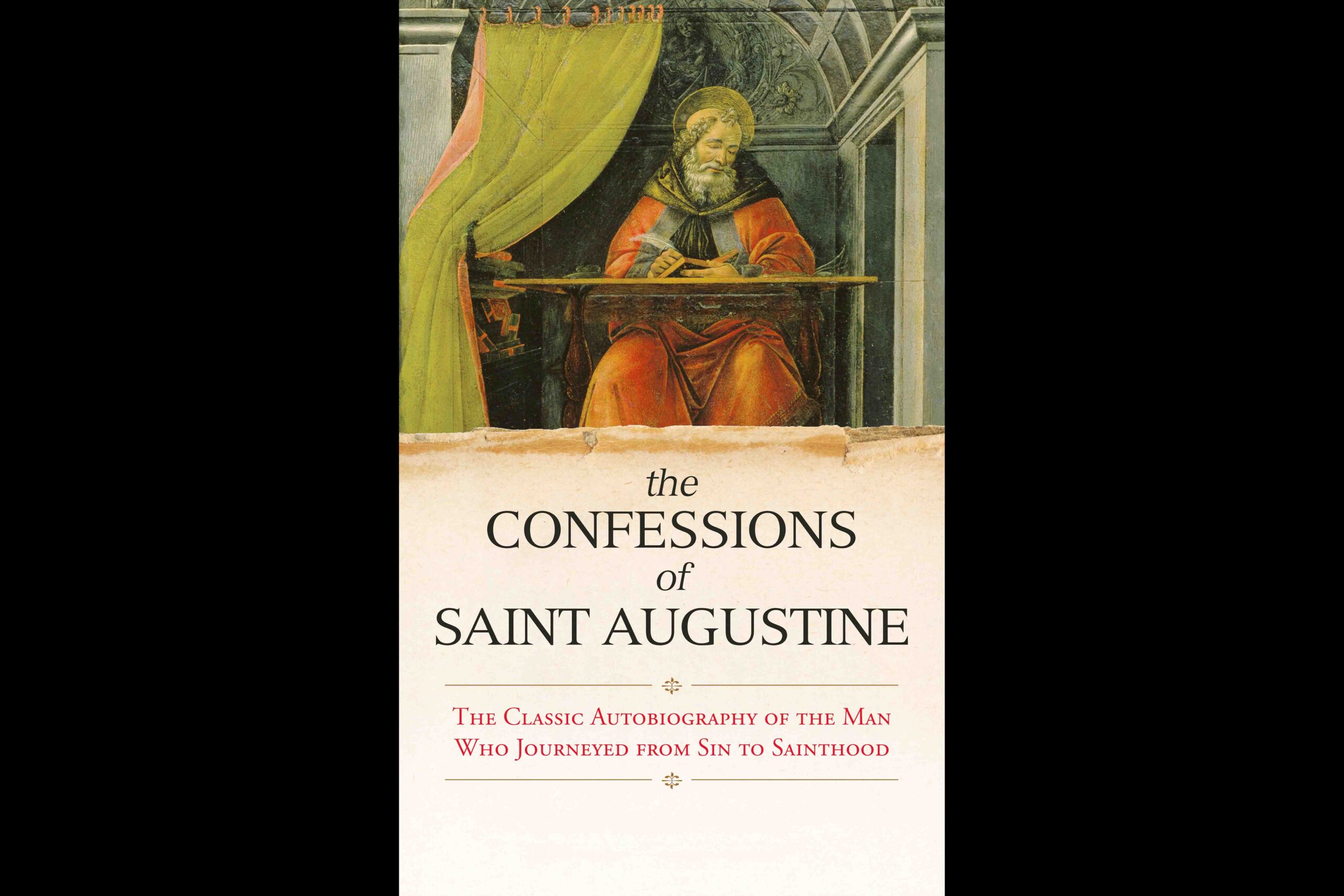Saint Ignatius of Antioch, the bishop of that city of Syria who succeeded Saint Peter, was arrested and brought to Rome in chains to be thrown to the lions in the Coliseum. While a prisoner from Antioch of Syria to Rome, he wrote seven letters to the churches he was passing through.
They are an extraordinary document, upholding the local bishop’s authority with his clergy and the reality of Christ’s incarnation. He is the first to use “Catholic Church” as a collective designation for Christians. But mainly, his letters express his heroic determination to die as a martyr. Ignatius died in Rome around the year 107 AD, under Emperor Trajan. He is mentioned in the First Eucharistic Prayer of the Mass.
“I AM GOD’S WHEAT”
This is the most remarkable of the seven letters; it is addressed to the Church of Rome. We quote extensively from it: “I am writing to all the churches and I am proclaiming to all that I am dying willingly for Christ, if only you do not hinder me. I plead with you, do not be of an untimely benevolence towards me. Allow me to be the food of wild beasts, through whom it is possible to reach God. I am God’s wheat, and I am being ground by the teeth of the wild beasts in order that I may be found as Christ’s pure bread. Petition Christ on my behalf, that through these instruments I may appear as a sacrifice for God.
The joys of this world and the kingdoms of this age profit me nothing. It is better for me to die for the sake of Christ Jesus than to rule over the ends of the earth. I seek him who died for us; I desire him who arose for our sake. The birth pangs are upon me. Understand me, brothers. Neither hinder me from living nor desire that I die. Do not give to the world the man who wants to belong to God; do not deceive him with material things. Let me grasp the pure light. When I have arrived there, I will be a man. Allow me to be an imitator of the suffering of my God. If someone has God within him, let him understand what I desire and let him have compassion on me, knowing that which oppresses me”.
“IF I SUFFER, YOU FELT AFFECTION FOR ME”
“The ruler of this age wishes to snatch me away and to corrupt my mind, which is directed towards God. Let no one of you who are there aid him, but rather be on my side; that is, on the side of God. Do not be proclaiming Jesus Christ, but desiring the world. May envy not dwell in your midst. Do not be persuaded by me if I should plead with you when I am present. Be persuaded, rather, by these things which I am writing to you. I, who am writing to you while I live, and yearning to die.
My earthly desire has been crucified, and there is in me no fire for material things. But there is a living water in me which speaks and says within me, ‘Come to the Father.’I no longer desire to live the life of men. That will come to pass, if only you will wish it. Do wish it, so that you may also be found favourable.
I am entreating you in a few words. Believe me. Jesus Christ, the truthful mouth in which the Father has spoken in truth, will make it clear to you that I am speaking the truth. Intercede for me, that I may obtain this. I do not write to you according to the flesh, but according to the mind of God. If I suffer, you felt affection for me. If I be rejected, you hated me.”
“MEDICINE OF IMMORTALITY”
Ignatius is the earliest known Christian writer to emphasize loyalty to a single bishop in each diocese, who both priests and deacons assist: “Wherever the bishop appears, there let the people be; as wherever Jesus Christ is, there is the Catholic Church. It is not lawful to baptize or give communion without the bishop’s consent. On the other hand, whatever has his approval is pleasing to God. Thus, whatever is done will be safe and valid.”
Ignatius is known to have taught the divinity of Christ: “There is one Physician who is possessed both of flesh and spirit; both made and not made; God existing in the flesh; true life in death; both of Mary and God: Jesus Christ our Lord.” He stressed the value of the Eucharist, calling it a “medicine of immortality”.

